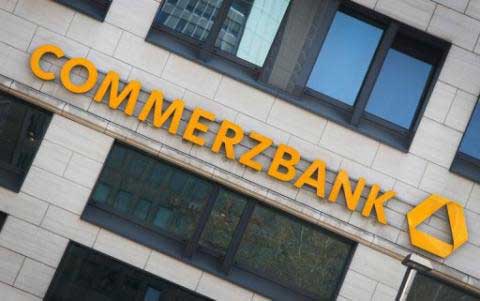German banks seem to be losing their appetite for agricultural commodities trading as public opinion turns against the investment vehicles blamed for driving up global food prices.

German banks seem to be losing their appetite for agricultural commodities trading as public opinion turns against the investment vehicles blamed for driving up global food prices. Germany's second-biggest bank Commerzbank announced in recent months that it is pulling out of agricultural commodities trading and ceasing to offer such investment vehicles to its customers.
Catastrophic droughts this summer in the United States and Russia have led to an explosion in global cereal prices, fanning the flames of debate on whether it is ethical for investment banks to make billions of dollars in profits from speculation in food commodities while millions of people are condemned to live -- and die -- in hunger and poverty.
"By betting on price developments for agricultural commodities, investment banks are driving up food prices. They are accessories to the world's famine crisis," the German-based NGO, Foodwatch, says on its website.
"And because the banks are using the money that we invest in life insurance policies and pension funds to gamble in this global commodities casino, it's a problem that implicates all of us," the campaign group said.
But the tide of public opinion is turning. And in face of growing pressure, Germany's second-biggest bank Commerzbank, regional banks LBBW and LBB and the savings bank DekaBank have all announced in recent months that they are pulling out of agricultural commodities trading and ceasing to offer such investment vehicles to their customers.
Deutsche Bank, Germany's biggest lender and which for most people embodies the German banking system, announced in March that it was shelving a new set of investment products based on basic agricultural goods.
Nevertheless, its DWS investment arm would continue to offer existing products, at least for the time being.
"We cannot with a clean conscience advise our clients" on investments in agricultural commodities, said Commerzbank's chief commodities analyst Eugen Weinberg.
"The media and politicians are currently convinced that these are driving up prices. And even if we do not share that opinion, for the sake of image, we don't want our products to be associated with speculation," he said.
German banks are nevertheless still relatively minor players in the agricultural commodities markets in comparison to big investment banks such as Britain's Barclays or HSBC, insurers and even agricultural companies themselves.
Industrial-scale agricultural producers, for example, use so-called futures contracts to guard themselves against short-term price volatility by fixing prices several months in advance.
"It could actually prove counter-productive to bar banks from investing in agricultural commodities," warned Thorsten Polleit, former chief economist at Barclays Capital and now chief economist at the precious metals trading group Degussa Goldhandel.
"Agricultural firms would find it difficult to finance their investments" and that would push up prices even more, Polleit argued.
Expert opinion is in fact divided over whether there is a real causal link between agricultural exchanges and rising food prices.
"The majority of studies reach the conclusion that investors aren't behind price movements per se, but that they reinforce the underlying trends be it up or down," said Manfred Schoepe, an agricultural specialist at the Ifo economic think tank in Munich.
In the long term, it is other factors that influence agricultural prices, such as global population growth, large-scale changes in nutritional trends or a decline in the amount of cultivatable land, he argued.
German Development Minister Dirk Niebel recently used the controversy of soaring agricultural prices to propose a ban on the sale of the bio-fuel E10, arguing that land used to cultivate it meant there was less land for growing foodstuffs.
In reality, however, E10 was disliked by car drivers because they feared it damaged their car's engine.
(VietNamNet/AFP)


























